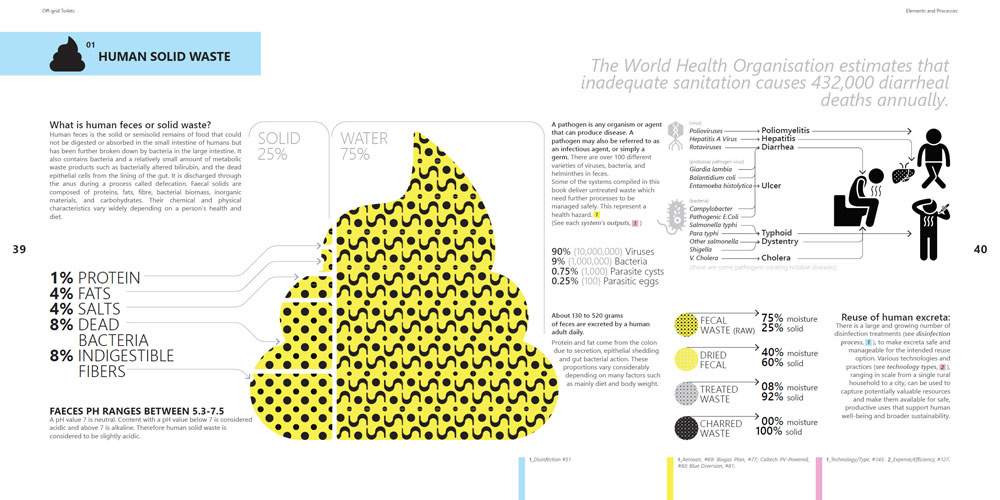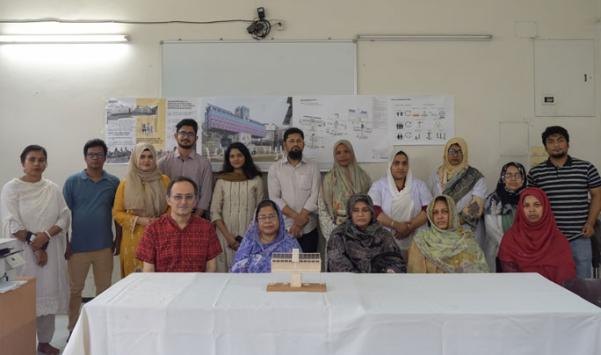Solar septic tanks and off-grid toilets
Dr Paco Mejias Villatoro and Dr Junjie Xi, researchers from the School of Architecture, have been working on international projects to improve sanitation in informal settlements, and to develop sustainable, net-zero septic tank systems to further strengthen public health.
Tackling water-borne disease in informal settlements
The growth of informal settlements is a global phenomenon accompanying the growth of urban populations. As estimated by UN-Habitat, 25% of the world’s urban population lives in informal settlements, with 213 million new informal settlers added to the global population since 1990.
The World Bank estimated that 61.6% of the urban population in Bangladesh lives in slums, a situation that is reflected in the capital, with almost 5,000 communities living in informality. The informal urban dwellers live in conditions incredibly different from the formal ones, under densities more than 11 times higher, and with under-five child mortality 79% bigger.
Water-borne diseases are partially responsible for this situation due to the difficulties the informal communities find in building a proper water and sanitation infrastructure and maintaining it adequately from bottom-up initiatives.
In 2020, we collaborated with the Centre for Inclusive Architecture and Urbanism (Ci+AU), BRAC University, on an ODA-funded project: Improving sanitation safety through soft engineering design solutions in informal settlements: Karail (Dhaka) and the pollution at Banani Lake. In this project, we studied two alleys in Karail and mapped the use of toilets and the mobilities within this area.
As one of the outcomes, we published the book Off-Grid Toilets: Compilation, Analysis and Comparison. The book starts with expert introductory texts defining the problem's importance to general audiences. It continues by introducing elements and processes involved in sanitation, followed by a compilation of the existing information about sixteen off-grid toilet technologies implemented worldwide.

A page from 'Off-Grid Toilets: Compilation, Analysis and Comparison'
The information is displayed in a high-graphical way to make it comprehensive for communities and NGOs interested in implementing these systems. Finally, the systems are classified and compared following their characteristics (from technologies to price or context) in a set of charts as a decision-making tool for selecting the best solution to be built in each context.
This book was financed by the Spanish Agency for International Development Cooperation (AECID) as part of the editorial programme of the Ministry of Foreign Affairs, the European Union and Cooperation. It also received support from WaterAid Bangladesh and the University of Liverpool. This book was presented at the office of the United Nations Development Programme (UNDP), Bangladesh, and positive comments were received from there.
Net-zero solar septic tanks

The research team presenting the model and design concept to teachers at Bhashantek School.
In 2022, we started a new project In-situ prototyping of a solar septic tank as a community-led infrastructure for COVID-19 recovery and improved public health in Karail; funded by the Partnership and Innovation Fund. This project is co-funded and is in collaboration with WaterAid Bangladesh.
We are building an in-situ prototype of a communal solar-heated septic tank at a public school of Bhashantek (Dhaka), acting as a disinfection chamber that combines the use of net-zero sustainable energy sources (solar energy and air-source heat pump systems) to increase the temperature of human waste for disinfection, creating fertilisers as a subproduct.
The outcome will be further adapted to other informal settlements and schools in ODA-listed countries. We are due to meet the mayor of Dhaka in January 2024 to explore how this system can be applied to other places in the city and many others facing similar challenges.